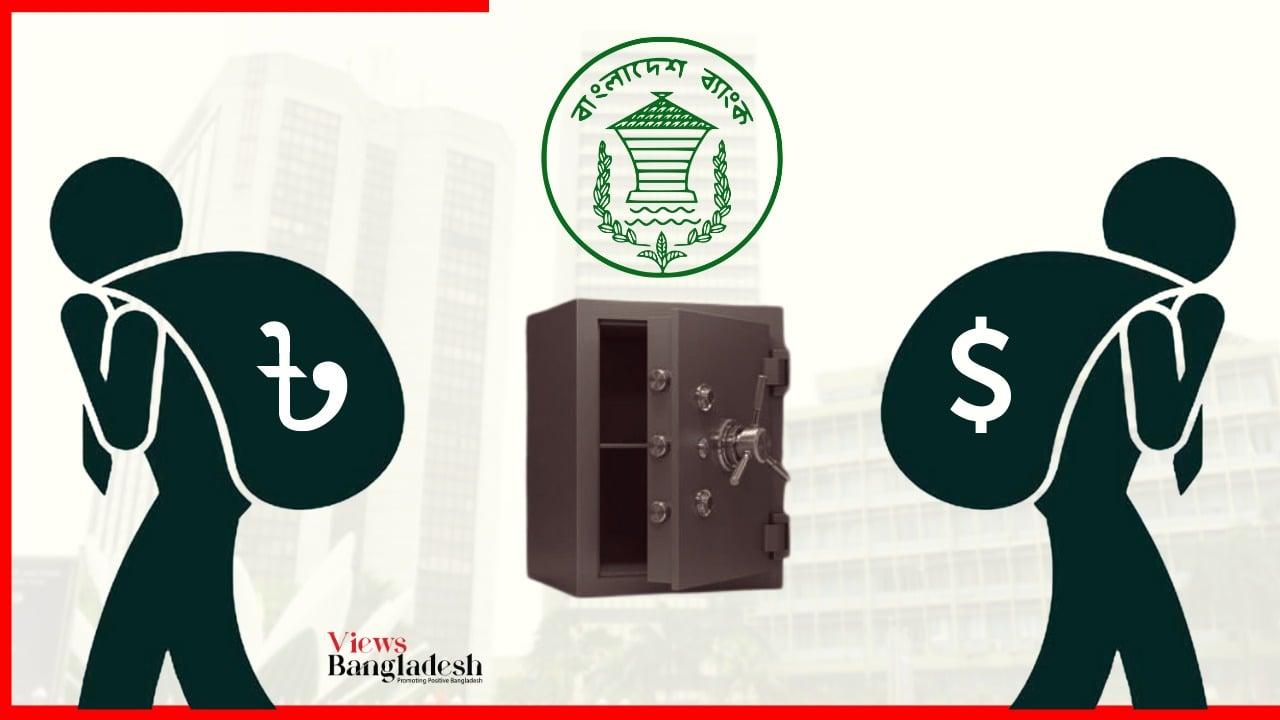Detrimental impact of defaulted loans on banking sector

The prevalence of non-performing loans (NPLs) in Bangladesh's banking sector is a widely discussed issue, and it is not confined to causing problems only for banking accounts. Rather, it has evolved into a complex problem affecting our national economy. About 86 percent of economic transactions in Bangladesh occur through the banking system. Consequently, if there are issues with banking accounts, these problems have a ripple effect on the entire economy. If non-performing loans in the banking sector were to reach their current levels, banks would be able to contribute more efficiently to the national economy. Many of the mega projects we are implementing could have been completed with this defaulted loan (TK 1 lakh 56 thousand 039 crore).
No banking system in any country is entirely free from non-performing loans. However, there exists a manageable threshold for non-performing loans, typically around 2-3 percent, in many countries. In our country, the amount of non-performing loans in banking accounts has long surpassed this threshold. Since non-performing loans have exceeded this acceptable limit, it is worth discussing their impact on the economy. The impact of non-performing loans extends far beyond its effects on the overall economy of the country; it significantly disrupts the internal management of banks. The efficiency of bank operations deteriorates due to the prevalence of non-performing loans. While a substantial portion of these problematic loans may be concentrated among a few borrowers, the repercussions affect the entire banking system.
When funds are trapped in non-performing loans that money cannot be redistributed as new loans. Consequently, no profit is generated from these funds. As a result, non-performing loans not only diminish the operational efficiency of the bank but also reduce its capacity to extend new loans. Banks do not conduct business with their own funds; rather, they operate by taking deposits from one individual and providing those funds to another. Typically, banks generate loans through the process of creating credit based on the deposits received from customers. In this process, after a customer deposits money in the bank, the bank creates loans using those funds. Through the repayment of these loans, money is once again deposited in the bank. This circulation of funds through various hands enhances the bank's profitability. The more this rotation occurs, the greater the profit for the bank. Consequently, numerous customers have access to loans, and economic activities proceed swiftly. This is how banking operations are conducted; however, if a customer holds onto the loan provided by the bank, the bank is hindered from earning the expected profit at the predetermined rate.
Banks are required to set aside provisions at a specified rate to cover potential losses from classified loans. These provisions are maintained from the bank's profits. As the volume of non-performing loans increases, the profitability of the bank decreases. The capacity of banks to extend loans to new entrepreneurs or individuals diminishes due to the impact of non-performing loans. On one hand, banks face challenges in recovering funds from non-performing loans, and on the other hand, they need to set aside provisions from their profits to cover potential losses associated with these loans. This situation adversely affects both the financial returns of banks and their ability to offer loans to new clients.
As a result, the amount of profit also decreases. Those, who engage in loan defaulting bear the consequence of their misconduct through regular installment payments. To increase their profits, banks raise the interest rates for those who regularly repay their loans. Consequently, for those who consistently pay their loan installments, this becomes a form of reward.
The prevailing banking laws often favour loan defaulters. While various benefits are provided to defaulters under the current laws, there is no such provision for those who regularly repay their loan installments. Those who consistently meet their loan repayment obligations may feel disheartened. Many countries in South Asia have effectively addressed the issue of manageable levels of non-performing loans through efficient systems. To bring the level of non-performing loans to a manageable level, political commitment is crucial. If the government takes a strong political stance against non-performing loans, then bringing the amount of non-performing loans to a manageable level is not an insurmountable challenge.
In this context, examples can be drawn from Malaysia and several other countries. At one point, Malaysia also faced a significant amount of non-performing loans in its banks. Mahathir Mohamad, who held political power in Malaysia, implemented effective measures to reduce non-performing loans. Through the enforcement of governmental authority, he adopted successful strategies to minimize loan defaulting. He initiated investigations through intelligence agencies to identify the top loan defaulters in the country. Additionally, he conducted further inquiries to determine the future course of action for these defaulters. He stands beside a palm tree on the path, where the journey of the top loan defaulter's car is halted. When the loan defaulter's car attempts to proceed along the path, he walks to the front of the vehicle, blocking the way. He instructs the top loan defaulter to step out of the car. Mahathir Mohamad then addresses him, saying, "I have learned that you are the top loan defaulter in the country. You do not have the capability to repay the loan. Instead of spending on this expensive car, I have seized this vehicle as collateral for your outstanding loan installments."
When this news spreads, a widespread panic ensues among loan defaulters nationwide. The list of major loan defaulters is circulated with instructions that they should not be allowed to leave the country. Even at the airport, this list is used to ensure that they cannot flee the country. This measure, implemented over the past few years, has led to a reduction in the amount of loan defaults in Malaysia, and discipline has been restored to these accounts. The strategy adopted by China to bring down the amount of loan defaults is even more interesting. China has implemented measures against major loan defaulters in their banking system, creating a sense of fear among them. The Chinese government restricts certain privileges for loan defaulters, such as prohibiting them from being admitted to large hospitals in the country. This includes regulations preventing loan defaulters from being admitted to major hospitals in the country.
For them, foreign travel is prohibited. Enrolling their children in prestigious schools is restricted. Travel on bullet trains is forbidden for loan defaulters. In some cases, even residing in major cities is prohibited, and they are relocated to rural areas. Certain loan defaulters are not allowed to live in big cities. Since many loan defaulters are economically disadvantaged, the question of availing such services does not arise for them. Someone financially capable cannot be a loan defaulter again. In China, those who are top loan defaulters receive voice messages on their mobile phones stating, "The person you are calling is one of the top loan defaulters in our country." As a gesture of goodwill, they are advised to return the installment of the loan and show respect to the court. Such measures taken in China exert immense pressure on loan defaulters and contribute to a reduction in defaulting on loans.
The question now is, what measures can be taken in Bangladesh to reduce the amount of default on loans? In our country, the major reasons behind the creation of loan defaulters are politics and the intertwining of business. Since gaining independence, there has been a growing nexus between business people and politicians, and this trend is on the rise. Business people are now becoming Members of Parliament, constituting 62 percent of the current national parliament. If those who are supposed to create laws against loan defaulters themselves turn out to be defaulters, how can we expect strict enforcement of laws against loan defaulters?
Another issue is the lack of internal governance in each bank. Influential politicians or politically affiliated individuals of a certain class are not returning loans taken from banks. Some banks are also providing opportunities by joining hands with these individuals. In the context of loan recovery, where strictness was needed in enforcing the law, Bangladeshi banks have, in various ways, facilitated exemptions for loan defaulters. In an attempt to showcase artificial cleanliness, various methods have been employed to portray loan defaulters as if they have been naturally exempted from their responsibilities after repaying the loan installments. Bangladesh Bank has been modifying the existing banking laws to provide benefits to capable loan defaulters. This initiative by Bangladesh Bank has been likened by an economist to sweeping dirt under the carpet while trying to present a clean house.
Due to various legal provisions provided by Bangladesh Bank, even responsible loan recipients may feel motivated to become defaulters. The existing judicial process also poses a hindrance to the effective collection of defaulted loans. The country lacks a sufficient number of economic courts, and many of those serving as judges in these courts do not have a proper understanding of financial matters. Cases filed in economic courts often linger for years, adding to the challenges faced by borrowers who wish to resolve issues against them. Many loan recipients who want to file cases against the decisions of the economic courts can be unsure and anxious in such situations.
Author: professor and former chairman of the Department of Banking and Insurance in Dhaka University.
Transcribe: M A Khaleque


Leave A Comment
You need login first to leave a comment